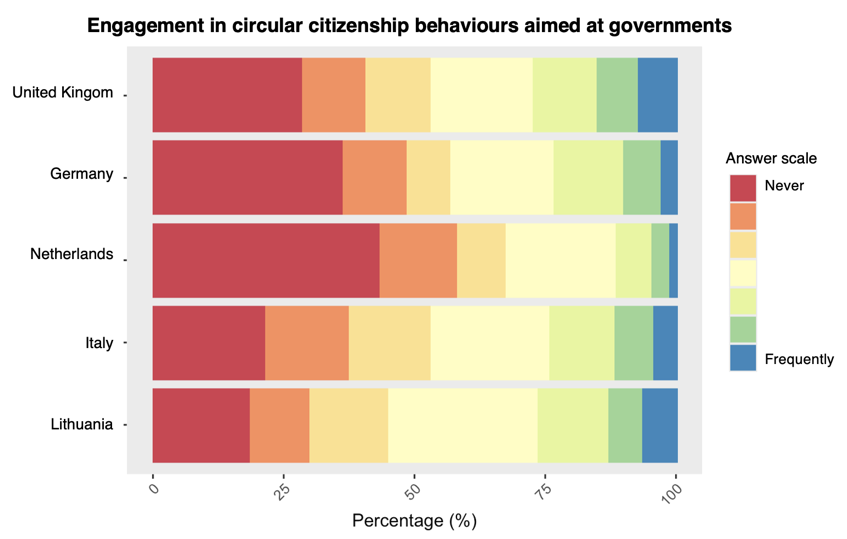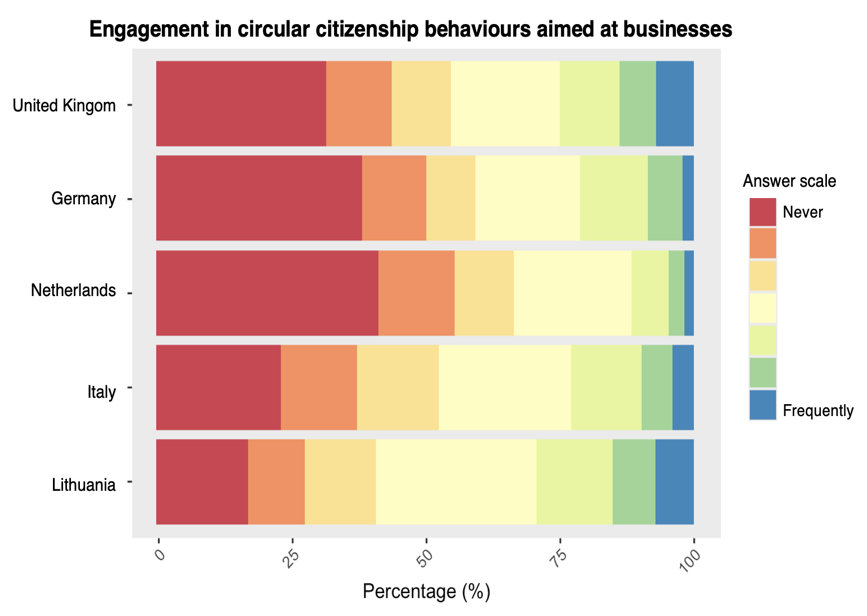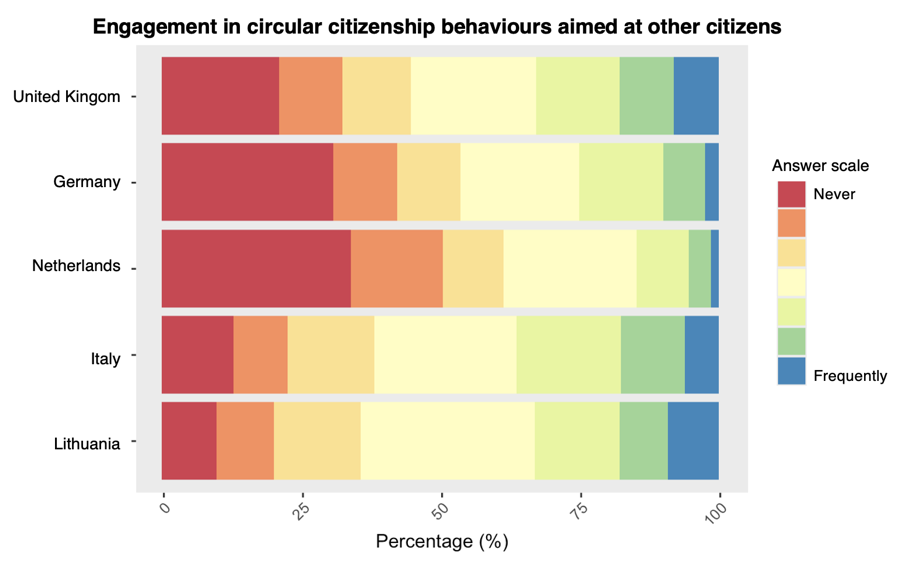
Even when people are motivated to adopt circular consumption behaviours, they may face different contextual barriers that hinder them from doing so. Nonetheless, citizens can take actions to urge other actors, such as governments or industry, to take steps that would make it easier and more attractive for people to engage in circular consumption behaviours. We refer to these actions to urge others as circular citizenship behaviours (Pacheco et al., n. d.):
“Circular citizenship behaviours are individual or collective actions that aim at influencing other actors, thereby actively shaping the societal system in favour of narrowing, slowing, and closing loops of resource use.”
To what extent people engage in these circular citizenship behaviours that target the system around them? In a multi-national questionnaire study, CircEUlar’s team from the University of Groningen in the Netherlands sought to find out.
In the questionnaire, participants could indicate how often (ranging from “never” to “frequently”) they engaged in the following actions to support a circular economy:
- Actions to influence the government, e.g. protesting, signing petitions, emailing officials, participating in public assemblies or hearings.
- Actions to influence businesses, e.g. investing in sustainable businesses, giving input for product/service design, speaking up in the organisation they work for.
- Actions to influence people around them, e.g. informing friends and family on how to reduce the use of resources and why that matters, or motivating them to change their behaviour.
What we found
The figures below show how frequently citizens in the five different countries (the United Kingdom, Germany, the Netherlands, Italy, and Lithuania) engaged in circular citizenship behaviours aimed at governments, businesses, and other citizens. The findings indicate that:
- Not many people currently engage in circular citizenship behaviours targeting different actors. Many people do not engage in circular citizenship behaviour at all, while only a few frequently engage in them.
- People are slightly more likely to engage in circular citizenship behaviours aimed at other citizens than actions aimed at influencing governments or businesses.
- People in Lithuania and Italy are more likely to engage in circular citizenship behaviour, in particular compared to the Dutch, which indicates there might be some cultural differences in engagement.
Engagement in circular citizenship behaviours aimed at:
- Influencing governments

- Influencing businesses

- Influencing other citizens

As a next step, we will examine which factors promote circular citizenship behaviours in order to better understand which factors can best be targeted to promote them and consequently accelerate the CE transition.
References
Pacheco, I.M., Van der Werff, E., & Steg, L. (n.d.). Circular citizenship behaviours: How individuals can promote systemic change towards a circular economy. [Unpublished manuscript].
